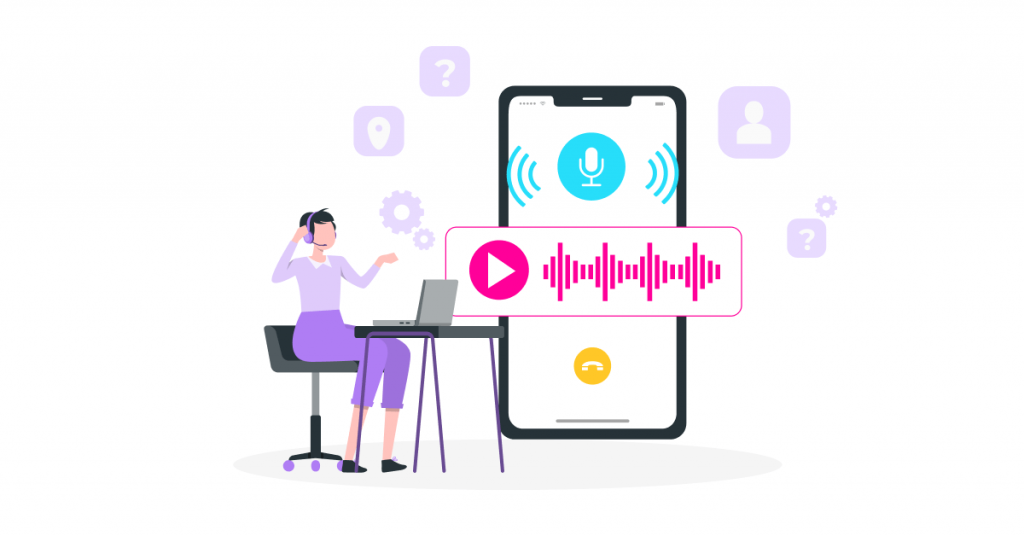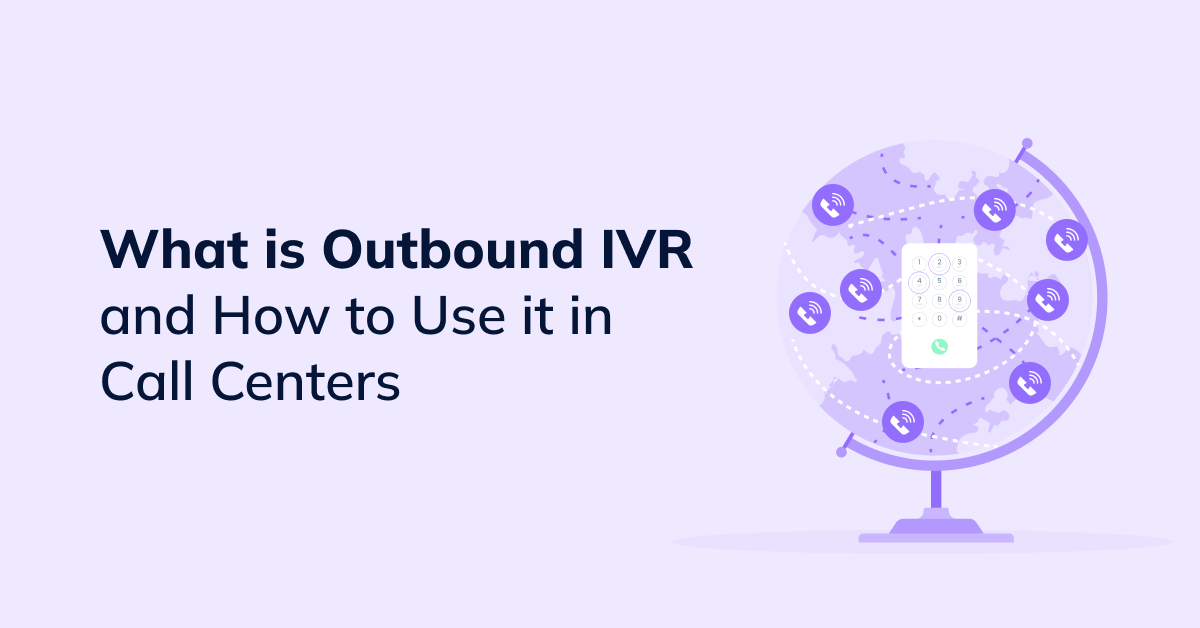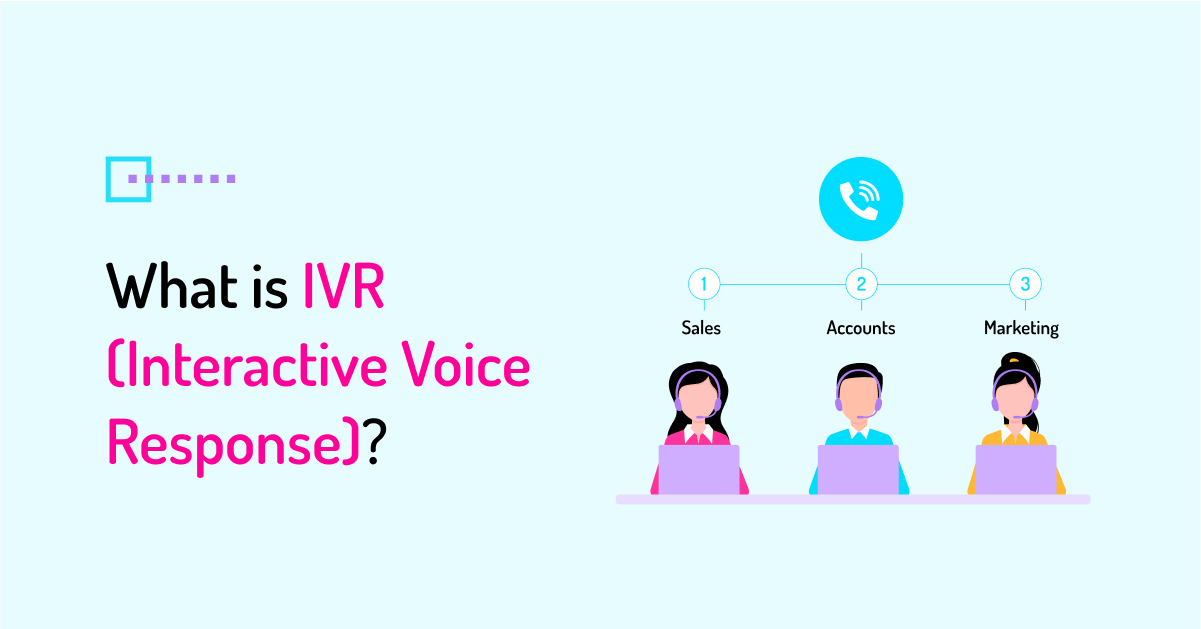Escalated calls are inevitable in call centers, given the nature of customer service interactions. Call escalations can directly affect other call center metrics, such as the Average Handle Time (AHT), First Call Resolution (FCR), and Customer Satisfaction Score (CSAT). The way call center agents are able to de-escalate tense conversations and properly handle call escalations can impact customer satisfaction and the overall customer experience.
What is a Call Escalation in a Call Center?
Call escalation is the process of transferring a customer’s call to a higher-level support tier or a senior representative (often a call center manager) when a call center agent is unable to resolve a customer’s issue, typically because of the lack of specific knowledge, resources, or authority.
Escalating customer calls is a common practice in call centers that ensures customers get the expert support they need, regardless of the complexity of their issue, and allows call centers to maintain satisfaction levels.
Call Escalation Matrix and Different Types of Escalation
To streamline the issue-handling process and ensure customer requests are handled quickly and efficiently, call centers should have a call escalation matrix with a clearly outlined escalation process flow. A call escalation matrix defines the paths and criteria for escalating calls in a contact center, providing a structured framework for agents to follow whenever they come across an issue that goes beyond their scope of knowledge or authority.
Thus, when an agent fails to resolve a customer’s query, the two most common types of escalations may occur:

Hierarchical call escalation
This is the most common type of escalation that involves escalating calls to a higher level of support based on authority, expertise, and decision-making power.
For example, a Tier 1 support agent may escalate a call to a Tier 2 agent who has more expertise in handling issues that are beyond the capabilities of Tier 1 agents.
Functional call escalation
In the case of functional escalation, a call is escalated to the team or individual with the exact skill set required to resolve an issue, regardless of their level in the call center’s hierarchy.
For example, a payment-related inquiry would be escalated to the billing department, while a compliance-related issue – to a legal compliance department.
The Importance of Reducing Escalation Calls
Call escalations not only affect critical call center metrics and KPIs such as First Call Resolution (FCR), the Average Handle Time (AHT), CSAT, and NPS scores, since escalation is often associated with increased customer frustration and dissatisfaction. Disappointed customers are also more likely to churn and share negative reviews and word-of-mouth, negatively affecting a call center’s reputation and causing a business to lose current and potential customers. That is why having a well-defined strategy to reduce call escalations is critical to maintaining high CSAT scores and a positive reputation.
Find out in our article how to improve Average Handle Time.
De-escalation Techniques in Call Centers

De-escalation in customer service involves certain techniques call center agents should be able to use in customer interactions whenever they have to deal with challenging calls that might require escalation.
Active listening
Active listening is of paramount importance in the de-escalation process. When interacting with frustrated or upset customers in customer service calls, agents should employ active listening alongside other customer service skills, which helps to defuse tension during an interaction. Very often, an angry customer wants to voice their frustrations, for the most part.
Uninterrupted listening is a simple yet highly efficient way to let them feel their concerns have been heard and acknowledged, helping to reduce the emotional intensity of the conversation.
In addition, active listening allows agents to get a deeper insight into the customer’s perspective and the underlying reasons for their frustration, enabling them to find the most appropriate resolution and contributing to call de-escalation.
Showing empathy
Showing empathy is one of the most efficient ways to de-escalate potentially conflicting situations. By displaying empathy, demonstrating compassion, and letting a customer know you are on their side, agents are showing that they acknowledge the customer’s emotions, which helps to create mutual understanding and build trust and rapport. Below are some examples of empathy statements that customer support agents can use to show empathy in customer interactions when dealing with upset customers:
‘If I were in your position, I would feel exactly the same way.’
‘I am truly sorry to hear about your experience.’
‘I can imagine how frustrating that would be.’
‘I realize how upsetting this must be for you.’
‘I can see why that made you angry.’
‘I know how confusing this must have been.
‘I appreciate your patience in this matter.’
Using positive vocabulary
Whenever agents deal with frustrated customers and handle an escalation call, they should pay close attention to the word framing they use. It’s essential to avoid using negative statements like ‘No’, ‘I don’t know’, ‘I cannot’, ‘I don’t understand’, ‘It is not in my power’ , and similar phrases that may have negative connotations as they could annoy customers even more. Instead, it’s recommended to use positive vocabulary and reframe the situation from a negative to a positive perspective.
For example, instead of saying ‘I’m afraid I cannot help you with that’, an agent may say ‘Let’s see what we can do’ or ‘I will try to gather more information on this and get back to you’, which conveys more empathy, respect, and optimism, helping to reduce escalations.
Keeping customers informed
Another effective way to de-escalate a tense conversation and divert a customer’s attention from the issue they are experiencing towards a solution is to inform the customer about the next steps you are going to take to get their issue resolved. While on an escalated call, it’s important to let the customer know your further actions, provide realistic timeframes, and keep them updated about the status of the resolution process. It helps remove any uncertainties a customer may have and better manage their expectations.
Strategies and Best Practices to Reduce and Prevent Call Escalations
Below are some call center de-escalation tips, strategies, and best practices to reduce and avoid call escalations in contact centers.
Coaching call center agents

Call center de-escalation training should be part of the agent training and coaching programs following the onboarding process. To ensure agents are able to efficiently deal with challenging interactions, timely de-escalate tense conversations, and handle escalated calls, call center managers should train agents on basic de-escalation techniques, including how to employ active listening, how to display empathy and apologize, how to respond to frustrated customers and those who demonstrate inappropriate behavior, how to properly transfer calls and adhere to call center escalation procedures, etc.
Implementing intelligent call routing
Implementing intelligent call routing can help call centers reduce the number of call transfers and escalations altogether by ensuring calls are always routed to the best-fitting agents.
E.g., with skill-based routing, which is a common feature of call center management software solutions, inbound calls are routed to agents with the most relevant skills and expertise to handle certain types of issues. Not only does it help reduce transfers and escalations, but it also shortens the Average Handle Time (AHT) and improves First Call Resolution (FCR).
Maintaining an internal knowledge base
An internal knowledge base serves as a centralized hub of information related to a company’s products, services, and processes. That could include how-to articles, product guides, troubleshooting instructions, FAQs, videos, Standard Operating Procedures (SOPs), call scripts, etc. Having a comprehensive internal knowledge base call center agents can easily refer to and quickly find the most relevant and accurate information while on a call with a customer can significantly reduce the need for call escalations.
Using AI speech analytics

In addition to advanced call center software featuring intelligent call routing capabilities, call centers can leverage speech analytics tools, such as VoiceSpin’s AI Speech Analyzer, which can analyze 100% of calls in real time by utilizing speech recognition and Natural Language Processing (NLP) technologies. Speech analytics tools enable managers to spot inefficiencies that lead to supervisor escalation calls, as well as automate the entire quality assurance process and identify agent training gaps.
Leveraging customer feedback
Regularly and consistently monitoring Customer Satisfaction Scores (CSAT) through surveys is another valuable tool for preventing and reducing call escalations in a contact center. When done right, CSAT surveys can provide managers with valuable customer feedback, helping them identify the most common escalation triggers – factors that cause customers to escalate calls to a higher authority.
These factors could include, for example, an agent’s lack of professionalism, empathy, knowledge, or resources to resolve a customer’s issue or handle their dissatisfaction with the product or service. By identifying these escalation triggers, managers can effectively address them, reducing the number of escalated calls.





 +18889082995
+18889082995
 +442036084160
+442036084160
 +97237237006
+97237237006